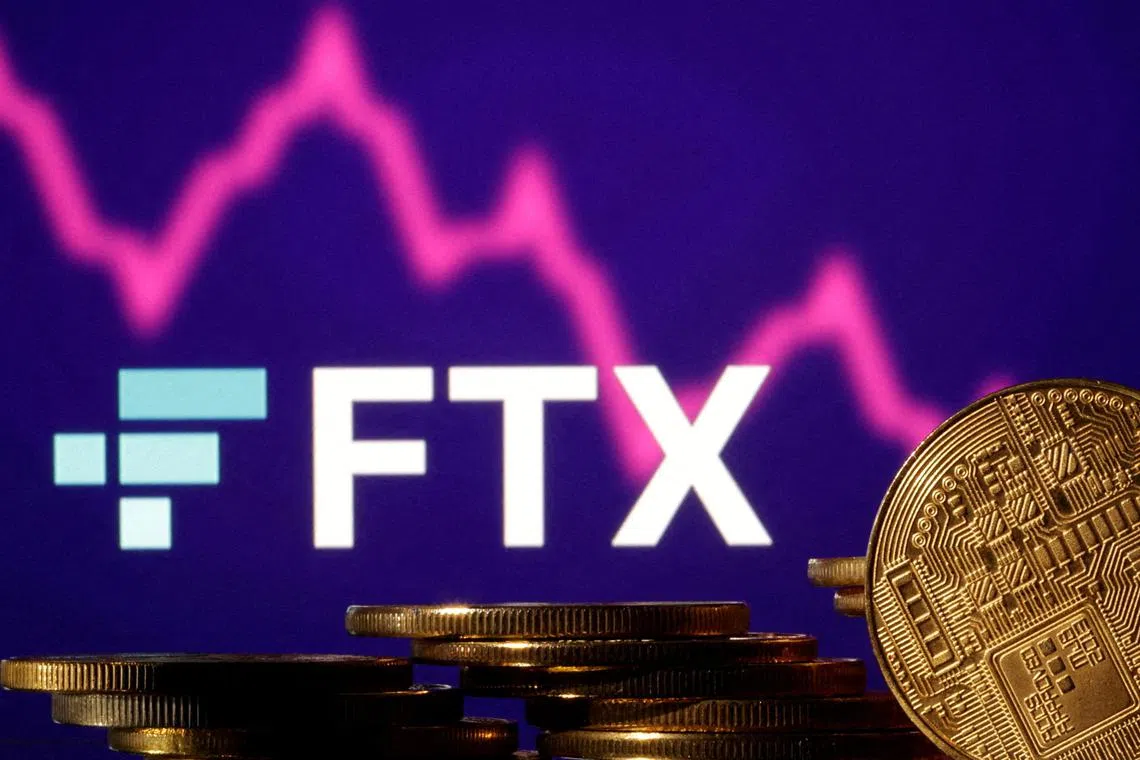US prosecutors opened probe of FTX months before its collapse
Sign up now: Get ST's newsletters delivered to your inbox

The focus of the probe was on compliance with the Bank Secrecy Act.
PHOTO: REUTERS
New York – Long before Mr Sam Bankman-Fried’s FTX cryptocurrency empire collapsed
The US Attorney’s Office for the Southern District of New York spent several months working on a sweeping examination of cryptocurrency platforms with United States and offshore arms, and had started poking into FTX’s massive exchange operations, according to people familiar with the investigation.
The focus was on compliance with the Bank Secrecy Act, the people said. The authorities have used the law, requiring financial institutions to take steps to prevent money laundering and terrorism financing, to go after crypto platforms that allegedly falsely claimed that they do not serve US customers.
Bahamas-based FTX operated one of the world’s largest international crypto exchanges, as well as a separate and much more limited venue called FTX US that said it complies with the Act.
It is unclear whether prosecutors in Manhattan reached any conclusion in their probe before FTX – valued at nearly US$32 billion (S$44.2 billion) in a January financing – collapsed, sending the crypto market into a dive and raising questions about the accuracy of its pledges to safeguard customer assets. This put the federal investigation into a new trajectory, the people said.
The months-long sweep shows that FTX’s sprawling operations were raising questions even before billions of dollars in financial ties between the exchange operator and Mr Bankman-Fried’s Alameda Research investment arm alarmed investors and led his empire to unravel.
Prosecutors and regulators, including the Securities and Exchange Commission and Commodity Futures Trading Commission, are now seeking help from new FTX chief executive John Ray III, who took over as part of its bankruptcy proceedings and is navigating what he described as “a complete absence of trustworthy financial information”.
Last week, Mr Ray told the bankruptcy court in a filing that his team had found loans of more than US$1 billion made by Alameda to Mr Bankman-Fried and other executives. The filing also alleged that software was used to conceal the use of customer funds. Whether any such conduct broke laws will be left to prosecutors. So far, they have not accused anyone of wrongdoing.
The loss of customer funds at FTX means that the authorities will examine whether the exchange misled clients about how their assets would be held, former prosecutors said. To prove wire fraud, investigators would have to show someone at FTX did so for gain using a wire, such as a phone call, e-mail or text.
The FTX bankruptcy case will aid prosecutors in figuring out what documents exist to subpoena. Investigators will also seek communications between employees, whether that is via e-mail, Slack, Signal or WhatsApp, as well as testimony from witnesses, said Mr Anand Sithian, a former federal prosecutor now at Crowell & Moring.
“What is going to be hard when you issue a subpoena to financial institutions is that it can take 30, 60, 90 days to process,” Mr Sithian said. “Here if you send a subpoena, I don’t know that the company, FTX, would have that ready. They might need to recreate that.” BLOOMBERG


